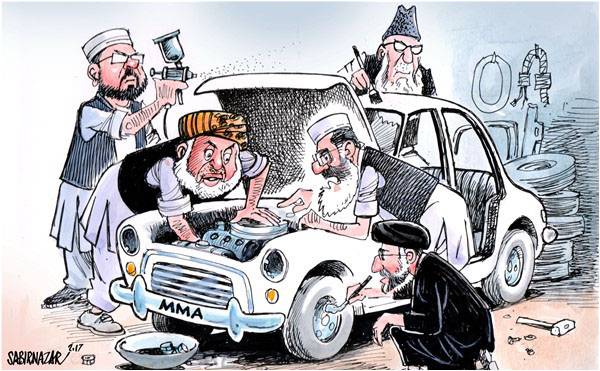
Black Day
Sir,
It has been three years since December 16, 2014, the day of the Army Public School attack but many questions remain unanswered. We cannot begin to feel the emotions of the parents and teachers, the feelings of the mother, who didn’t know that her son would not come back from school that day. What about the teachers who won’t see their students again?
Who is to be held responsible for this? What we did we do for them besides sit at home and upload statuses showing sympathy? The APS attack affected the whole nation.
The least we can do for the families who lost their young ones is assure them that we are standing with them.
Mohsin Moazzam,
Karachi.
My name is Baloch
Sir,
Recently, I made a small visit to other cities of Pakistan where I faced a number of problems and had to keep saying “I am a Baloch not a terrorist.” It was strange to have to keep making this statement in your own country just to prove yourself.
I began to think of the SRK dialogue: “My name is Khan, I am not a terrorist.” The movie ‘My name is Khan’ is a 2010 Indian drama film directed by Karan Johar and stars Shah Rukh Khan and Kajol in lead roles. The film was based on an American Muslim whose life was disrupted after the September 11 attacks on the twin towers in New York City. One of its lines was: “My name is Khan, but I am not the terrorist.”
How strange for the Baloch that they do not have full rights as Pakistanis. It is my request that the government accept the Baloch as Pakistanis. Unfortunately, the Baloch have a province in Pakistan but are not fully authorized to live in it.
Sajjad KB,
Turbat.
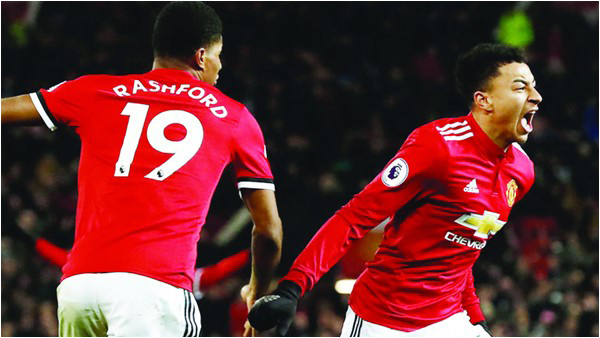
Demise of ManU
Sir,
“It was the best of times, it was the worst of times …. It was the season of light, it was the season of darkness, it was the spring of hope, it was the winter of despair.”
Nothing describes the mood in Manchester, than Charles Dickens’s most famous quote (A Tale of Two Cities, 1859). The followers of Manchester United enter the New Year burying any hope of a title challenge, while their neighbour seems destined to clinch another Premier League title, in a style reminiscent of Arsenal’s Invincibles – unbeaten.
United have been replaced by their city rivals: Manchester City, who are now the dominant power in the country. City have spent close to US$1.2b (net spend: $850 million), since the summer of 2013 and have managed to build a fierce squad that is not just winning games but annihilating the opposing teams.
During the same time period, the Red Devils have expended approximately $1 billion (net spend: $700 million). However, despite this massive outlay they have been unable to develop a squad that could rival the best teams in Europe.
In defence, it is baffling to see that United’s right-back and left-back positions are often filled by players that were bought as attackers: Ashley Young and Antonio Valencia. At the centre-back positions, in the absence of Eric Bailly, we see Chris Smalling and Phil Jones – both of whom would struggle to get into any of the top teams in Europe. Yet, they maintain an impressive defensive record, due to the heroic efforts of one man: David de Gea.
Across midfield, United still lacks a genuine playmaker that could unleash the attacking capabilities of the forwards. They have been unable to find a reliable pairing, since the loss of Roy Keane and Paul Scholes. With an unlimited budget and arguably the best brand name in football, the blame for this lapse falls entirely on club management over the past few years, including the legendary Alex Ferguson.
Jose Mourinho’s attempt at fixing the problem with Paul Pogba and Nemanja Matic, seemed like a good solution but their partnership is failing to deliver on the pitch with Pogba being the biggest disappointment. A player who was bought for a world record fee of $120 million, now valued around $85 million, looks ordinary in the centre of the park – when compared with Kevin de Debryne or N’Golo Kante.
Unfortunately for United, their problems do not end there. In attack, both Anthony Martial and Marcus Rashford are better players than Romelu Lukaku, at the moment, but after spending a massive $100 million on a new striker, few managers would risk dumping him in favour of someone else, halfway through the season. Lukaku has failed to convert easy chances, forcing his team out of the title race. Not to mention, he is horrible at defending corners as witnessed in the past couple of games. Even Mourinho couldn’t help term the goals scored by the opposition, as “S—- Goals!”, caused by the mistake of Lukaku on at least two occasions.
The only glimmer of hope for United at the moment is their manager, who has a track record of success with teams like Porto, Chelsea, Inter Milan and Real Madrid. He was handed a team, riddled with problems but has still brought them up to the second spot in just his second year in-charge. He was probably hoping to find a Didier Drogba in Lukaku, a mixture of Frank Lampard and Michael Essien in Pogba and those have been his biggest mistakes. Although, in Matic he might have found a Claude Makelele.
Given the above issues, it is clear that United has turned into Mourinho’s greatest challenge and the next few months will reveal, if he can restore this club to its former glory or wreck his own career - trying to rescue a sinking ship.
Khawaja Akbar,
Via email.
2018 predictions
Sir,
Being an amateur palmist and numerologist, I have made the following assessments, analysis, prediction regarding Pakistan in 2018:
It will be a good year for Pakistan to see encouraging agriculture. A year to remember for new marriage bonds and to improve family relations. Our nation will see unexpected historic political ups and downs. The PML-N will be able to form a new government at the Center with the help of at least a six-party alliance. The alliance will break up in a few months and we will see the new prime minister complete their term by introducing national reforms at a very large scale with a firm practice of the rule of law. This phase will be the beginning of a new era for Pakistan.
The security agencies will gain much more public trust due to major changes at all levels. The MQM will take the lead among its own factions in the elections. An alliance of religious and regional parties with the PPP and PTI will be able to form governments at the provincial levels. The chief minister in Punjab will not be from the PML-N. The people will see accountability of civilians and the armed forces personnel this new year.
Khalid Mustafa
Advocate
Islamabad
Khalid-mustafa.webs.com
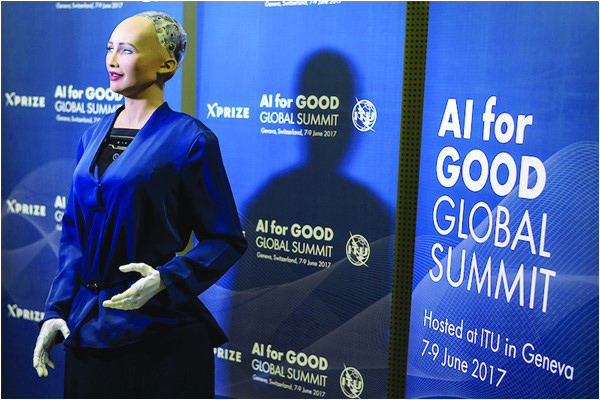
Sophia’s descendants
Sir,
The headline that robot Sophia had been granted citizenship recently shook humanity with readers across the world viewing it with excitement and disbelief. In a world where countless of our fellow brothers and sisters are deprived of this most basic of rights, a robot was granted citizenship. Even more shocking is that she has been granted citizenship in a country where even the entrance of foreigners to some cities is not permitted. For many, this has set a bad precedent of how we might be choosing to treat robots in the near future.
So what does this mean exactly? Will robots be given greater priority over humans? Will they be granted basic rights that we as humans demand—rights that elude those who suffer in poverty, endure harsh realities. Will we be seeing an era in which mere bits of machinery are given greater importance than the actual flesh and blood of our fellow human companions? Will they be more valuable and if this is to be the case, what will further advancements in the numerous fields of artificial intelligence and robotics lead to? What will it mean for us? Let us take a deeper look into it, exploring what it is actually and what it can potentially be leading us to.
An AI capable of complex decision-making is a positively astonishing and overwhelming thought. How can we trust something with no empathy and emotions to carry out possible life-altering tasks? A machine that is able to self-teach will be near impossible to control after a certain period of time, and the possibility of it going haywire could have devastatingly detrimental effects, leaving the entirety of humanity at risk.
Imagine a few decades down the line, living in a world dominated by AI and robots. Where would we humans fit in such a world? Would we be considered as easily disposable hurdles in front of a super intelligent being, carrying out its tasks no matter the cost? Or would we still have the same level of importance that greater authorities argue we all have in today’s day and age? Does the introduction of Sophia mark the beginning of the end for the human race?
A super intelligent machine would not necessarily be motivated by the same emotional desire to gain power that often drives us human beings. However a machine could be easily wired and adjusted to take over the world as a rational means toward attaining its ultimate goals, taking over the world would increase both the accessibility to all resources, and would furthermore also help to prevent other agents from thwarting the ultimate plan. Additionally, it’s only natural that when two super intelligent beings face off, one always tries to dominate, leading to a war which might just lead to the overall annihilation of the human race.
The threat from AI isn’t only just the possibility of total world domination and eradication of the human race, it also means that with the ability to be able to self-teach, machines will eventually become smarter than us and therefore as a result become more efficient in their performances. This has raised worries that human labor will become obsolete, leaving people in various sectors without jobs to earn a living, leading to an economic crisis.
Several world-renowned science and tech experts have been quick to vocalize their fears of AI. Theoretical Physicist Stephen Hawking famously worries that advanced AI will take over the world and end the human race. Elon Musk, the futurist CEO of Tesla and SpaceX, echoes those very same sentiments, calling AI, “A fundamental risk to the existence of human civilization.” Bill Gates said that AI was potentially more dangerous than a nuclear catastrophe. Nick Bostrom, a 43-year-old Oxford Philosophy professor warned in his 2014 book, Super Intelligence, that “once unfriendly superintelligence exists, it would prevent us from replacing it or changing its preferences. Our fate would be sealed.”
Artificial General Intelligence researcher Eliezer Yudkowsky has stated that humanity is less likely to be threatened by deliberately aggressive AIs than by AIs which are programmed as such that their goals are unintentionally incompatible with human survival or well-being. According to him, AI might not be the main reason behind the end of humanity but it will play a very big part in the overall picture of it.
Exactly why are a few of the greatest minds of this generation so afraid of the possibility of human eradication by the hands of machines at some time in the near future? The reason lies in the complexity of human values, emotions and empathy. To teach a machine all these things is a near impossible task which makes AI all the more unpredictable and henceforth more dangerous and deadly.
This all might still seem a bit far-fetched, but with rapid advancements in this field, an era of a robotically controlled world doesn’t seem all too far away. The only question that remains is whether this new developmental introduction will be of beneficial use to our world and us, or if it will be the cause of our unchangeable and everlasting destruction?
Fahad Tanveer,
Shaheer Arshad,
COMSATS, Lahore.
PIA US flights
Sir,
Instead of performing the role of custodian, the government has become instrumental in the erosion of the national flag carrier, PIA, through abuse, cronyism and mismanagement.
With enough ethnic traffic to make PIA break-even and become profitable, all that was required by every government that has held office, since the days of Zia ul Haq, was to appoint men or women of integrity and competence at the helm who would recruit the best-qualified available talent. In an age of specialization, CAA Pakistan, with an abundance of revenues, should have acquired the services of qualified and experienced persons to perform its regulatory control as per the ICAO guidelines and not become a dumping ground for the welfare of retired officers and political blue-eyed cronies.
As demand for the number of passenger seats and air cargo grew with a rise in expatriates Pakistanis living in the Gulf, Europe, America etc, a fair share was necessary to be offered to other regional airlines so that competition offered would prevent any complacency from setting in. Instead what happened was that controversial individuals, some with a history of financial and administrative indiscipline, were appointed the CEO of both PIA and CAA. Excess traffic rights were given to foreign airlines, which ultimately created a surplus capacity exceeding the available number of revenue passengers to the disadvantage of the national airline. The regional Gulf-based airlines owned and subsidized by their states, went on a rampage in a fare war patronized by the ruling elite who were held hostage to their own conflicts of interest.
A lack of regulatory oversight, kickbacks in procurement and leasing of aircraft and unchecked revenue pilferage coupled with the appointment of incompetent and corrupt cronies drove the Operating Cost so high that Accumulated Losses have risen from Rs4 billion in 2005 to over Rs330 billion by mid-2017. Instead of aggressive marketing, financial indiscipline and even foreign postings became hostage to politics and the Manager Passports was posted as the Country Head of the US while a CEO accused of gross financial and recruitment irregularities by the AVM was appointed as MD.
Annual losses of over Rs1 billion on US operation could be curtailed by eliminating the cost of positioning aircraft from Karachi to northern hubs where 80% of traffic originates, reducing extra parking charges involved at JFK, rationalizing salaries, reducing administrative costs etc. What happened with goodwill on grandfather rights for slots at JFK will remain mystery.
Malik Tariq Ali,
Lahore.
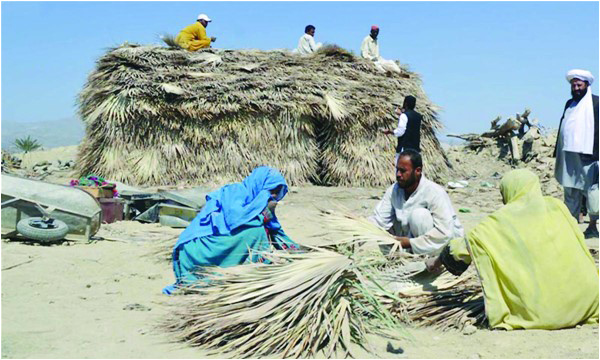
Rural Baloch
Sir,
71% of Pakistanis belong to its rural areas. This applies to Balochistan too, where the majority of the population live in non-urban settings. This is where we find the education system is lacking and the government doesn’t seem to know how to fix the problem. What is worse, people do not necessarily know how education can impact or change their lives. They think it is a waste of time to send their children to school.
These villagers are mostly occupied with making ends meet each day and worry about making money. This means that they ask their children to also work. Where there are schools, there are no teachers. If there are teachers, they do not do a good job and are under-qualified. How can we expect these people to want to send their children to school if this is the state of affairs.
More importantly, the government never conducts any sort of counselling about education and its impact in these areas. The higher authorities just pass the bill and money for the construction of schools but never monitor if the job was done.
The authorities here receive the funds, make one to two classrooms and hire their own people as teachers who have never seen the inside of a classroom themselves. Such teachers just come and sit to pass their time and take the salaries every month.
This issue is also linked to child marriage. After dropping out of school, children go to work to earn for the family. When their parents notice that their children are bringing in money they feel it is time to wed them. And they wed them with girls of their ages. Unluckily, the married children are always between the ages of 9 and 16. Research shows early marriage leads to depression and ill health. Recently three grooms of a village near Turbat committed suicide one year after their weddings. Their ages were 11, 12 and 13.
It is the fundamental right of each and every citizen to get an education but we are not getting it in our rural areas.
Ali Jan Maqsood,
Turbat.
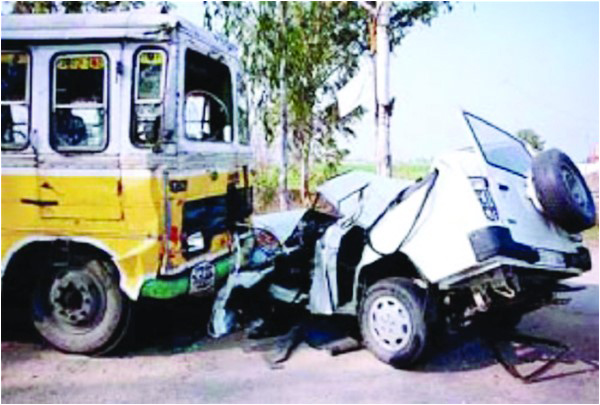
Drunk driving
Sir,
Drunk driving happens in Pakistan too even though alcohol is banned in the country. In Karachi the numbers have gone up over the years but many cases are not reported as families deal with them under the table at the police station and they are not registered in the roznamcha.
Pakistan is ranked fifth in the world for road traffic injuries (approx 40,000. Licenses should be suspended if a driver is found guilty of driving under the influence of alcohol (DUI).
How can we forget the incident of five young men who killed a man at Khayaban-e-Ittehad. In September we saw the case of Balochistan MPA Abdul Majeed Achakzai who ran over a traffic policeman on duty.
Shaeran Rufus,
Karachi.

